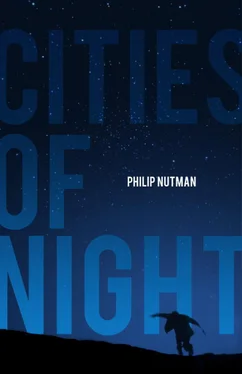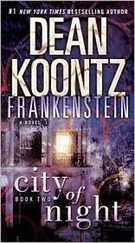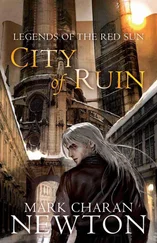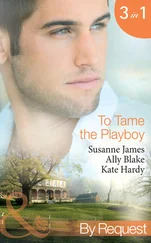Philip Nutman - Cities of Night
Здесь есть возможность читать онлайн «Philip Nutman - Cities of Night» весь текст электронной книги совершенно бесплатно (целиком полную версию без сокращений). В некоторых случаях можно слушать аудио, скачать через торрент в формате fb2 и присутствует краткое содержание. Город: Toronto, Год выпуска: 2012, ISBN: 2012, Издательство: ChiZine Publications, Жанр: Ужасы и Мистика, на английском языке. Описание произведения, (предисловие) а так же отзывы посетителей доступны на портале библиотеки ЛибКат.
- Название:Cities of Night
- Автор:
- Издательство:ChiZine Publications
- Жанр:
- Год:2012
- Город:Toronto
- ISBN:978-1-92685-185-3
- Рейтинг книги:4 / 5. Голосов: 1
-
Избранное:Добавить в избранное
- Отзывы:
-
Ваша оценка:
- 80
- 1
- 2
- 3
- 4
- 5
Cities of Night: краткое содержание, описание и аннотация
Предлагаем к чтению аннотацию, описание, краткое содержание или предисловие (зависит от того, что написал сам автор книги «Cities of Night»). Если вы не нашли необходимую информацию о книге — напишите в комментариях, мы постараемся отыскать её.
Eight cities.
Three continents.
One voice.
From Atlanta to Blackpool, London to New York, from Rome, Italy to Albuquerque, New Mexico via Hollyweird and the city of Lost Angels, all are cities of night.
And the night is forever. Now.
Cities of Night — читать онлайн бесплатно полную книгу (весь текст) целиком
Ниже представлен текст книги, разбитый по страницам. Система сохранения места последней прочитанной страницы, позволяет с удобством читать онлайн бесплатно книгу «Cities of Night», без необходимости каждый раз заново искать на чём Вы остановились. Поставьте закладку, и сможете в любой момент перейти на страницу, на которой закончили чтение.
Интервал:
Закладка:
Alex had lived his dark dream — live fast, die young — and now it was Jamie’s turn. Where his brother had failed — or succeeded, depending on your viewpoint — he would succeed on his own terms.
Only one doubt assailed him, a question perhaps best left unanswered.
What had happened that night, and why?
When the bike had hit the truck, he’d stood for an eon — in reality less than a minute — then walked away, not experiencing any feeling akin to those he knew he should feel at the instance of violent death: shock, horror, loss. Of course, there was no way he could have known it was Alex. In fact, he had not known — that terrible, liberating knowledge came later. Yet Jamie had known on some deeper level, a primitive, reptilian level of consciousness.
He’d walked away unaware that there was a blind man trapped in the cab screaming silently in mute agony, his vocal chords severed by the shattered windscreen, and as Jamie crossed the river, he felt some part of him — innocence, perhaps — depart on eldritch wings, heard leathery membrane flap and rustle up into the black sky. The only sensation wrapped around his heart was an indescribable peace. When he reached home, still in a somnambulist state, he’d gone straight to bed, falling into a dreamless sleep, the quiet repose of a baby untouched by earthly fears and the burden of adult consciousness. He awoke the following morning to the sound of the doorbell and, seconds later, his mother crying.
And so Jamie’s world had changed.
Alex had lived a lie, a falsehood woven by those who were imprisoned by their own frightened isolation. So long as the lawn was neatly mowed, the floral print curtains hung correctly, and the checks didn’t bounce, there was no teenage suicide, no incest, alcoholism, rape, drug abuse, famine or war — except in the newspapers. The middle class were too smart and too stupid to let those ills touch them. But Jamie would explore the lie, try on its masks through the role-playing of fiction, seek the truth, however ugly. And if there was a price to pay, when the time came, he would freely give the ferryman his coinage and cross the river one last time, secure in the understanding that he’d traveled roads known only by a select few: the dreamers, the mad, the restless.
He sneezed. He was coming down with his usual winter cold and the September chill didn’t encourage lingering in the open.
“Good-bye, Alex.” Jamie’s voice was loud against the cemetery’s tranquility.
As he turned, he noticed a crow watching him from high up in the branches of an old oak. The bird cawed, rustling its feathers.
His last respects paid in full, Jamie walked up the steep incline toward Rush Hill and school. When he was but a dot on the landscape, the crow took flight, arcing up into the clear sky, its wings a black apostrophe on the vast, impersonal cerulean expanse.
PAVLOV’S WRISTWATCH
As soon as the tube train entered the tunnel, Hatchard felt uncomfortable.
The sudden rush of rotten air made his ears pop, and as he swallowed to clear them, he felt the crowded compartment close in. Sweat began to pool under his arms making his blue polyester shirt stick to his skin. He tried to breathe shallowly to conserve oxygen, but this did little to reduce the smells attacking his nose.
A garlic pong clouded the carriage, coming from a portly Asian man to his right. He hoped the man would get off soon; he hated the smell of garlic. The smell swirled around him, clashing with the sickly sweet smell of perfume coming from the woman on his left. Fortunately, as the train pulled into Highgate Station, the woman, her face a mask of Max Factor, stood up to squeeze her way towards the door. As she went, a youth in a tattered denim jacket slipped into the vacant seat. He was wearing a Walkman, noise overflowing from the headset that looked to Hatchard like an Aliceband with tiny earmuffs. He began to bite his already ragged nails, gnawing at the quicks.
With a jolt, the train lurched as it quickly departed from the station, throwing him against the portly man.
“I’m sorry,” he mumbled, but the man ignored him.
The youth placed a new tape in the machine, tapping his foot to the staccato beat hissing from the headset.
Tick… tick… tick… tick, tick, tick…
Hatchard’s throat went dry. The clock-like noise, steady, relentless, unnerved him. He tried to push the thought from his mind, but it was no good, it had already taken root. Try as he might to imagine something nice (a dish of ice cream, yes, a big dish of raspberry ripple crowned with a maraschino cherry and wafer fan), the face of the Crocodile bled through the melting confectionery. It was taunting him. It couldn’t come for him here, not with so many people around. You couldn’t be taken by a Crocodile in such a place, could you?
How could it?
Could it?
But the Crocodile was the Crocodile. It knew more than he. There was so much he didn’t know or understand. He suddenly felt very cold.
Tick, tick, tick… tick, tick, tick…
He squashed his eyelids to shut out the world and began to mumble his prayer.
“I am a free man. I do not believe in clocks. Clocks are BAD. I am free of time. My time isn’t up yet because it doesn’t exist. I’m free. Crocodile, you cannot touch me.”
Against the black screen of his squeezed eyes, the Crocodile leered its greedy grin, opening its mouth, the echo of the clock that beat in its sepulchral belly teasing him.
Tick, tick, tick… tick, tick, tick…
He continued to scrunch his eyes until they hurt as he repeated the prayer, more forcefully this time. Still the clock sound continued to chip away at his nerves.
The train arrived at Archway. Some people got off. Many more boarded. Why didn’t the youth leave? Oh, please make him stop! He opened his eyes in panic. Didn’t the other passengers realize what the youth was doing — calling the Crocodile, playing its game? No. They were fools. Blind. Unaware of the huge shape lurking behind them, dogging their every step, pretending nothing mattered except getting to work. As he looked around he saw no one was taking any notice of him. They were unaware of the seriousness of their situation, the idiots. That, of course, was what the Crocodile wanted. Not him, not just Stephen Hatchard — it wanted them all. And the youth was calling it with his tapping. Now he knew the awful truth. Somewhere ahead of the train the Crocodile lay in the tunnel, its body grown huge on the dead flesh of others. Then he thought the train could be inside the Crocodile, the tunnel its throat, its destination the cavernous belly.
No, how could it?
His imagination was running away, trying to take him with it, trying to take him to the Crocodile. But he wouldn’t go! He was a FREE MAN.
As the train pulled into Tufnell Park, there came a beeping sound and the portly man tugged up the sleeve of his raincoat to consult a digital watch.
This was too much! He stood up, jostling a man reading The Times , pushing against the newspaper.
“Watch it,” the man said.
Hatchard whimpered as he squirmed his way towards the doors. “Stupid git,” someone else moaned as he pushed frantically forward to reach the platform before the door closed.
“Manners,” said a woman as he shoved her in desperation.
“Excuse me, excuse me,” he mumbled, remembering manners maketh man, even in the face of death.
There! He’d made it. He was out!
His breath came in short gasps which attracted the appalled attention of a young woman rummaging in her handbag as he leapt out in front of her. He smiled sheepishly, but she backed away, disturbed by his unkempt appearance. He began to trot towards the stairs. It had been a silly, no, dangerous idea to take the tube into central London. He should have known better and taken the bus. Relieved by his escape, he grinned a Cheshire cat grin to himself as he reached the flight of steps.
Читать дальшеИнтервал:
Закладка:
Похожие книги на «Cities of Night»
Представляем Вашему вниманию похожие книги на «Cities of Night» списком для выбора. Мы отобрали схожую по названию и смыслу литературу в надежде предоставить читателям больше вариантов отыскать новые, интересные, ещё непрочитанные произведения.
Обсуждение, отзывы о книге «Cities of Night» и просто собственные мнения читателей. Оставьте ваши комментарии, напишите, что Вы думаете о произведении, его смысле или главных героях. Укажите что конкретно понравилось, а что нет, и почему Вы так считаете.












